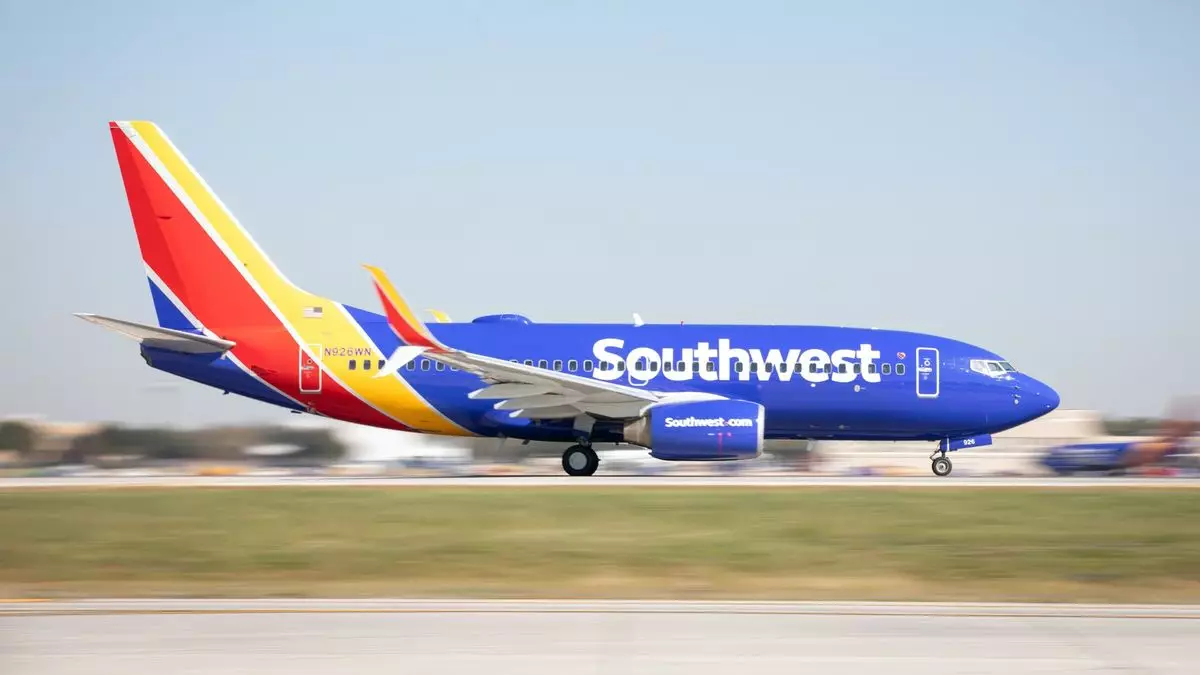The aviation industry, a critical component of modern transportation and economic development, often faces various challenges, including flight delays, cancellations, and other disruptions that can significantly affect consumer trust and satisfaction. Recently, the U.S. Department of Transportation (DOT) has initiated legal proceedings against Southwest Airlines, marking a significant escalation in its regulatory stance toward maintaining service quality in air travel. This article explores the legal ramifications, consumer impact, and regulatory context surrounding this lawsuit.
The Allegations Against Southwest Airlines
The DOT recently filed a lawsuit against Southwest Airlines in the U.S. District Court in San Francisco, particularly targeting two flights that have faced chronic delays throughout the spring and summer of 2022. According to the DOT, flights operating between Chicago and Oakland, California, and Baltimore and Cleveland exhibited a pattern of delays that exceeded the standards set by the DOT. The criteria for a flight to be deemed “chronically delayed” include consistently arriving more than 30 minutes late over an extended period, defined as more than half of the time for four consecutive months.
By seeking penalties, the DOT aims to impose a maximum civil fine that could reach up to $37,377 per day for each infraction. This move aligns with the DOT’s efforts to enhance accountability among airlines and support consumer rights, particularly in light of dissatisfaction stemming from unreliable flight schedules.
In a statement following the lawsuit’s announcement, Southwest Airlines expressed disappointment with the DOT’s actions, arguing that its operational history has demonstrated reliability. The airline highlighted that it has successfully completed over 20 million flights since the introduction of the DOT’s chronically delayed flight policy in 2009, with no other violations reported. Moreover, they noted their commendable performance in 2024, boasting that upwards of 99% of their flights were completed without cancellations.
This rebuttal raises questions about the broader implications of the DOT’s regulatory practices and their potential misalignment with an airline’s operational realities. Southwest’s defense underscores a conflict in perception: while federal authorities focus on compliance with regulatory frameworks, airlines advocate for a more nuanced understanding of the operational challenges they face.
The intensity of the DOT’s recent regulatory measures signals a more aggressive stance toward economic practices within the airline industry, particularly under the leadership of Secretary Pete Buttigieg, who has prioritized protective measures for consumers. This renewed emphasis is exemplified by a recent $2 million fine levied against JetBlue for similar issues, which resulted in a consent decree allowing the airline to avoid litigation in exchange for compliance.
Southwest’s choice to contest the lawsuit suggests a potential strategic gamble, particularly as the political landscape surrounding the DOT may change with the incoming administration. Donald Trump’s nominated head of the DOT, Sean Duffy, might influence the regulatory environment in ways that could either reinforce or mitigate the current punitive approach toward airlines.
Frontier Airlines: A Different Approach
In contrast to Southwest, Frontier Airlines has opted for a more conciliatory approach by entering a consent decree with the DOT following the uncovering of similar chronic delays affecting its flights. The airline has agreed to pay half of a $650,000 fine, contingent on its future performance regarding flight scheduling. The decision to avoid litigation emphasizes a growing trend among airlines to prioritize expediency and risk management when facing regulatory scrutiny.
Frontier’s situation highlights the challenges airlines face due to variables that can disrupt schedules—ranging from unpredictable weather patterns to external infrastructure issues—that often lie beyond their control. Their acknowledgment of these factors could serve as a pivotal point in discussions about the balance between accountability and operational feasibility in the aviation sector.
The Broader Implications for the Industry
As the transport sector grapples with the implications of legal actions surrounding flight delays, the Southwest lawsuit serves as a fundamental case study in regulatory enforcement and airline accountability. The increasing scrutiny from the DOT signifies a commitment to consumer advocacy that could reshape operational standards within the industry.
Going forward, airlines must balance regulatory compliance with operational efficiency while being mindful of consumer expectations. To build a more reliable framework, the aviation sector needs to integrate better communication strategies and operational practices that account for the complexities of air travel. Ultimately, the outcome of this legal battle will not only impact the parties involved but also set a precedent for the future prospects and regulatory environment of the whole airline industry.

